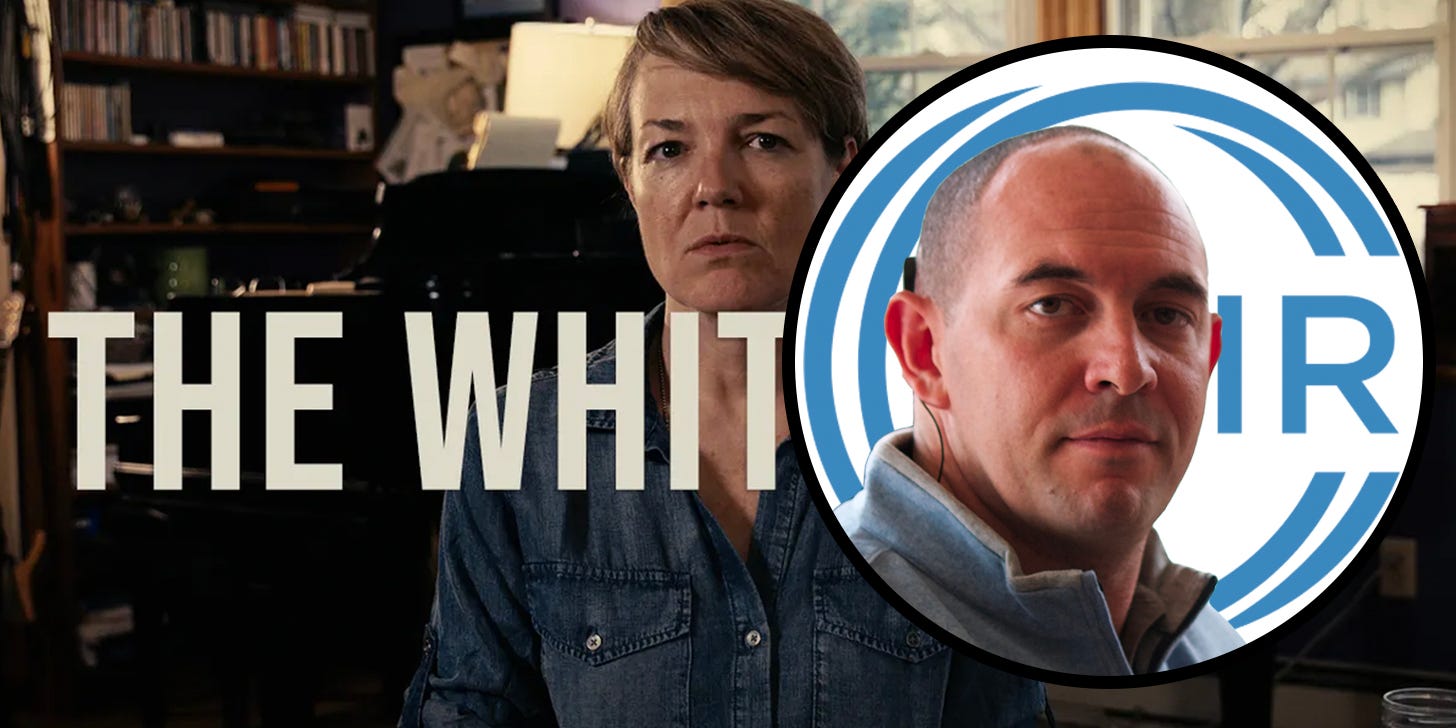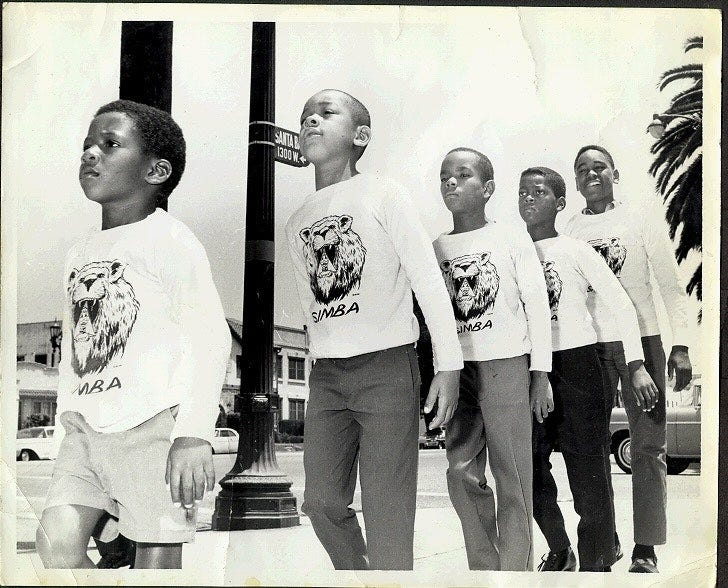Why Harvard’s canceling of Roland Fryer matters
For our Substack, Robert Evans writes about “MacArthur Fellow, recipient of the John Bates Clark Medal, and the founder of Harvard’s Education Innovation Laboratory,” Roland Fryer, who “has dedicated his career to understanding the persistent performance gap in low-income K-12 schooling, with a specific emphasis on black students.” Evans also discusses the reasons Harvard’s cancelation of the young economist over a Title IX complaint should matter to us all:
Fryer’s work is a perfect embodiment of what academic research should be: identifying issues of great importance to society, developing a hypothesis and testing it through rigorous empirical analysis, following the data wherever it leads, no matter how unpleasant or unpopular, and pugnaciously defending the results. He would seem like the quintessential Harvard man—in a different time, perhaps.
I'm gay and I eat at Chick-fil-A
Reid Newton writes for our Substack about her experiences growing up in Georgia, where “grabbing a Chick-fil-A sandwich for lunch, or a chicken biscuit for breakfast, was at least a twice-weekly occurrence.” Newton also discusses her views of the Cathy family, “who founded Chick-fil-A, are outspoken Christian conservatives,” and the how there were “calls across social media for LGBT people and their allies to immediately boycott the restaurant chain.”
Treat me with dignity and respect, and I will do the same for you. Do I agree with efforts to delegitimize gay marriage in this country? Absolutely not. Do I have enough faith in our legal system to ensure that the will of the majority in this country (which is increasingly pro-gay marriage) is upheld by the law? Yes, I do. In my twenty-six years of life, I have learned that the best way to change someone’s mind is to get to know them, to let them get to know me, and maybe even swap stories over a chicken sandwich.
Jodi Shaw and the Racial Mask of Whiteness
For Fox News, FAIR Advisor Eli Steele writes about his experience interviewing Jodi Shaw, “former Smith College staffer who rebelled against the college’s mandatory racial indoctrination program, a program designed to reduce her humanity to whiteness.” Steele details Shaw’s upbringing, experiences at Smith College, and the ways they intersect with the larger culture.
For far too long, I have encountered one individual after another whose speech was governed by the fear of saying the unsayable in our hyper-sensitive America. There was none of that in Jodi’s voice. Instead, I heard freedom. The proud Smith College alum says what she pleases and lets her thoughts wander far in hopes of discovering deeper understandings. Yet Jodi will quickly admit that for a period of time she had betrayed this freedom.
Katharine Birbalsingh is right about celebrating achievement
For The Telegraph, FAIR Advisor Inaya Folarin Iman writes about Katharine Birbalsingh, “the pioneering head of Michaela community school and the government’s new social mobility tsar,” who has “sparked a mild stir. This time for suggesting that getting children from poorer backgrounds into Oxbridge or the elite professions should not be the only measure of social mobility.”
Birbalsingh believes that we should do more to celebrate “smaller steps” towards upward social mobility - for a young person to secure a reasonably paid job in their local area, for instance, rather than becoming a barrister on a six-figure salary in London. For many people, she argues, particularly in deprived areas, this will still be a significant achievement.
Fear, Risk, and the State of Political Expression at HM
“The Horace Mann School appears on the surface to be a remarkably homogeneous community — politically,” writes Ryan Finlay for Horace Mann’s weekly newspaper The Record. “One could easily conclude that there are very few non–progressive students at HM, but this is an illusion; the community contains silent multitudes.”
HM, like so many other academic institutions today, fosters a learning environment that I believe is hostile to those who do not subscribe to progressive politics. This includes not just conservatives but also centrists and moderates on the left. As a result, our school has developed a political bubble in which the majority of the views expressed in classrooms are far to the left of the mainstream views of both the American public and the actual political average of the student community. A fantasy is built for progressive members of the student body, making them believe that their most radical opinions are far closer to the mainstream than is actually the case.
All Us So Called Blacks - Part One
For his Substack, Stoic Observations, Free Black Thought co-founder Michael DC Bowen writes about “a kind of journey through blackness which is at once personal & individualistic yet readily understandable and familiar to Americans.” Bowen explores the ways “various black Americans determine when they own blackness but blackness doesn’t own them” by answering questions posed to him at the recent New Alliances retreat he attended in New York City, regarding the ways people of African descent are considered a monolith—particularly by African Americans themselves.
I will be so bold as to say that here is a surefire way to disaggregate the monolith. It has something to do with the ways in which black Americans dither on class division. It pertains to why we bother to identify solidarity with the black homicide victim of police misconduct and not the white victim. It pertains to why we bother to name something Black in our special duties to ‘our people’. That sense of possession of people is so telling. Not ‘the people’ but ‘my people’. Not all lives. Black lives. Not crime. Black crime. Not the acquisition of power. Black empowerment. At some point of wisdom and moral maturity, the self-serving nature of these ‘brotherhoods’ and ‘allyships’ becomes irreversibly transparent.
The Battle Over Gender Therapy
For The New York Times Magazine, Emily Bazelon writes about the current climate regarding transgender health care, and the tensions surrounding the drafting of “a new version of guidelines called the Standards of Care to be issued by the World Professional Association for Transgender Health (WPATH).”
As they worked on a draft of the adolescent chapter of the Standards of Care, the big debate among clinicians was how they should respond to the thousands of teenagers who are arriving at their doors. Some are asking about medication that suppresses puberty or about hormone-replacement treatments. Leibowitz and his co-authors thought that the timing of the rise in trans-identified teenagers, as well as research from Britain and Australia, suggested that the increased visibility of trans people in entertainment and the media had played a major — and positive — role in reducing stigma and helping many kids express themselves in ways they would have previously kept buried. At the same time, the authors acknowledged that they weren’t sure that visibility was the only factor at play.
The Kids Are Alright
For Persuasion, Matt Major and Jacob L. Mackey write that, while they “recognize that there really is a problem on college campuses,” their experience opening a student chapter of Persuasion at Occidental College in Los Angeles gives them reason to be hopeful about “Gen Z.”
None of the participating students hesitated to answer the proposed question honestly, no one got “canceled,” and no one demeaned anyone else as a bad person for the views they expressed, however contentious. Instead, students appeared to learn from those whose views differed from their own, and they evinced not merely mutual respect but mutual affection. Unsurprisingly, it turns out that open and well-argued disagreement over pressing issues engenders deeper insight and understanding. Moreover, the exercise, when carried out in good faith, seems to strengthen affective bonds of community.
For audio versions of our FAIR News and FAIR Weekly Roundup newsletters, subscribe and listen to FAIR News Weekly on Apple Podcasts, Spotify, Google Podcasts, or via RSS feed.
Join the FAIR Community
Become a FAIR volunteer or to join a FAIR chapter.
Join a Welcome to FAIR Zoom information session to learn more about our mission, or watch a previously recorded session in the Members section of www.fairforall.org.
Take the Pro-Human Pledge and help promote a common culture based on fairness, understanding, and humanity.
Join the FAIR community to connect and share information with other members.
Share your reviews and incident reports on our FAIR Transparency website.













